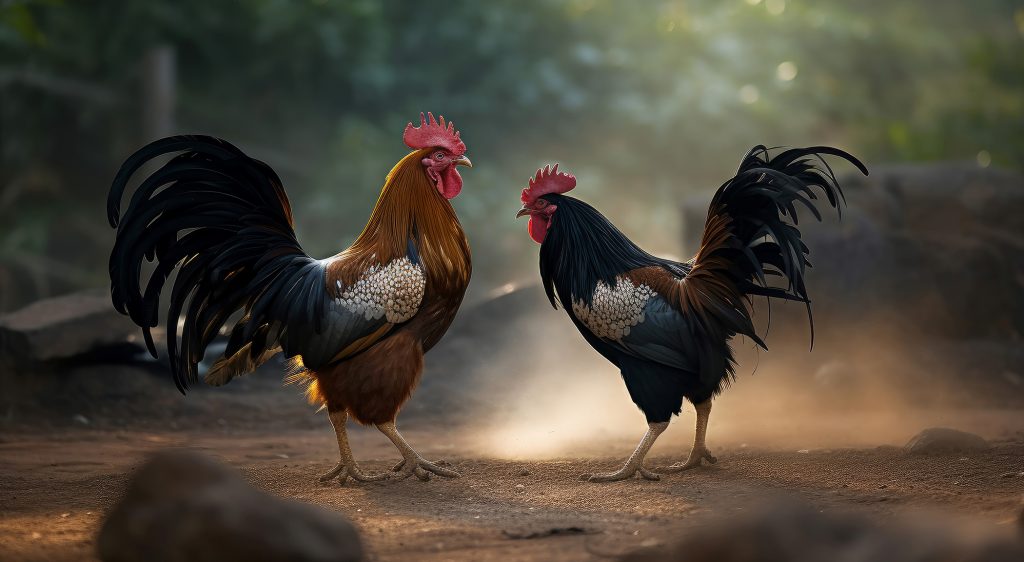Gamefowl are not only beautiful and majestic birds, but they are also susceptible to various diseases. It is crucial for gamefowl owners to be vigilant about common ailments and take proactive measures to prevent and address them.
Disease Prevention
Maintaining a clean and sanitary environment is paramount in preventing diseases in gamefowl. This involves providing fresh water, clean food, and regular cleaning and disinfection of the coop and run. Gamefowl should be kept away from other animals to minimize the risk of disease transmission.
Clean and Sanitary Environment: Regularly clean and disinfect the coop and run, and change water and food daily to prevent disease.
Vaccinations: Essential for disease prevention, vaccines safeguard gamefowl from diseases like Newcastle disease, avian influenza, and Marek’s disease.
Quarantine: New gamefowl should undergo a 30-day quarantine before joining the flock to prevent introducing new diseases.
Good Hygiene: Owners should practice good hygiene, washing their hands thoroughly before and after handling gamefowl to prevent disease spread.
Vaccinations
Vaccines play a crucial role in preventing various diseases:
Newcastle Disease: Highly contagious and fatal, vaccination is the best defense.
Avian Influenza: Another highly contagious and potentially fatal disease preventable through vaccination.
Marek’s Disease: Known for causing tumors in gamefowl, vaccination is key for protection.
Diagnosis
Prompt veterinary care is crucial if a gamefowl shows signs of illness. Look for:
Loss of appetite
Weight loss
Diarrhea
Vomiting
Coughing
Sneezing
Lethargy
Shivering
Fever
Swollen joints
Discharge from the eyes or nose
Skin lesions
Diagnostic tools include blood tests, X-rays, and swab tests to identify diseases.
Treatment
Treatment varies depending on the disease and may involve antibiotics, antiparasitics, fluids for dehydration, or even surgery for specific conditions.
Preventing the Spread of Disease
Prevent disease spread with these measures:
Isolate Sick Birds: Quarantine sick birds to prevent contagion.
Disinfect the Coop and Run: Thoroughly disinfect after a bird has been ill.
Hand Hygiene: Owners must wash hands before and after handling gamefowl.
Avoid Contact with Other Birds: Gamefowl should not be exposed to other birds, particularly sick ones.
Conclusion
Effective gamefowl health management is vital for raising healthy and productive birds. Following these guidelines, along with providing a balanced diet, fresh water, and regular monitoring, ensures the well-being of your gamefowl. Contact your veterinarian promptly if any signs of illness arise. By adhering to these practices, you contribute to the longevity and happiness of your gamefowl for years to come.
By Mhar Delaben – Publisher/Editor
 Purebred Warrior Digital Magazine — Issue 27
Purebred Warrior Digital Magazine — Issue 27  ROMULO DOMINGUEZ BALBALIN CLINCHES SOLO CHAMPIONSHIP AT 2025 MASTER BREEDERS’ CUP11-STAG NATIONAL DERBY LATE BORN EDITION
ROMULO DOMINGUEZ BALBALIN CLINCHES SOLO CHAMPIONSHIP AT 2025 MASTER BREEDERS’ CUP11-STAG NATIONAL DERBY LATE BORN EDITION  Manok Ni Cano Gwapo: World’s Largest Rooster-Shaped Building Makes History
Manok Ni Cano Gwapo: World’s Largest Rooster-Shaped Building Makes History  FIESTAG 2023: Celebrating Success and Looking Ahead to FIESTAG 2024!
FIESTAG 2023: Celebrating Success and Looking Ahead to FIESTAG 2024!  The Passionate Gamefowl Breeder: An Interview with Jason Daniel
The Passionate Gamefowl Breeder: An Interview with Jason Daniel  The 2024 World Slasher Cup 2: A Legendary Showdown at the Smart Araneta Coliseum
The 2024 World Slasher Cup 2: A Legendary Showdown at the Smart Araneta Coliseum  GAB CHAIRMAN OVERSEES 2024 WORLD SLASHER CUP PRE-FINALS: THE PINNACLE OF COCKFIGHTING EXCELLENCE
GAB CHAIRMAN OVERSEES 2024 WORLD SLASHER CUP PRE-FINALS: THE PINNACLE OF COCKFIGHTING EXCELLENCE  NENE ABELLO – PUREBRED WARRIOR MAGAZINE ISSUE #24
NENE ABELLO – PUREBRED WARRIOR MAGAZINE ISSUE #24 

